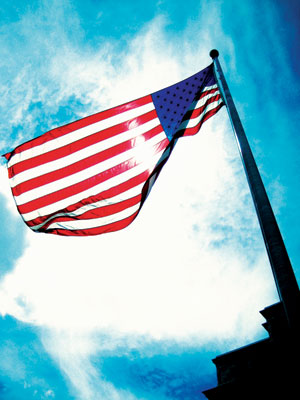All Nonfiction
- Bullying
- Books
- Academic
- Author Interviews
- Celebrity interviews
- College Articles
- College Essays
- Educator of the Year
- Heroes
- Interviews
- Memoir
- Personal Experience
- Sports
- Travel & Culture
All Opinions
- Bullying
- Current Events / Politics
- Discrimination
- Drugs / Alcohol / Smoking
- Entertainment / Celebrities
- Environment
- Love / Relationships
- Movies / Music / TV
- Pop Culture / Trends
- School / College
- Social Issues / Civics
- Spirituality / Religion
- Sports / Hobbies
All Hot Topics
- Bullying
- Community Service
- Environment
- Health
- Letters to the Editor
- Pride & Prejudice
- What Matters
- Back
Summer Guide
- Program Links
- Program Reviews
- Back
College Guide
- College Links
- College Reviews
- College Essays
- College Articles
- Back
"The Pledge of Allegiance" Should Be Said in Schools
In a world centered on political correctness, tolerance is key. What most people don’t realize is that tolerance goes both ways. Interestingly enough, the very people who advocate for tolerance don’t seem to understand the concept themselves. This is especially true when debating whether or not the “Pledge of Allegiance” should be said in public schools. Many students who do not support the recitation of the Pledge in school argue that we need to be tolerant of other ideas and respect all beliefs. Hypocritically, they seem unwilling to support those of us who wish to say the Pledge. Because tolerance comes from both sides, students like myself should be able to have the opportunity to say the Pledge in class.
Most people have forgotten the reasons why U.S. citizens began reciting the Pledge in the first place. In times of political and economic troubles, it was (and still is) important to stand together as a nation. Saying the “Pledge of Allegiance” offers the perfect opportunity for unity. By showing respect for the flag, citizens are directly supporting our wonderful country and all that it stands for. Acknowledging the flag is also a form of showing respect for all the men and women who died defending it. From the Revolutionary War to the War in Iraq today, soldiers have protected our country and given us “liberty and justice for all”, as stated by the Pledge.
In addition, those who do not support the “Pledge of Allegiance” often have a conflict with the words, “under God.” It is understandable that those who do not identify themselves as Christians do not wish to say these words; they should not be forced to say them. When “under God” was added to the Pledge in 1954, it was to show resistance to the Communist Movement in America. In keeping with tradition and the support of capitalism, “under God” is a valid part of the Pledge.
Living in the United States is a privilege that all citizens should be grateful for. It’s often forgotten how lucky we are to call this wonderful and free country our home. It baffles me that the “Pledge of Allegiance” is even debated about. After all that America has given us, should it really be that difficult to take ten seconds out of our school day to pay our respects? Everyone, young and old, rich or poor, Christians and atheists, Republicans and Democrats, can stand together and support our country. Being able to recite the “Pledge of Allegiance” in class offers every student this opportunity. The Pledge is not just 31 meaningless words—it’s a symbol of who we are as Americans.

Similar Articles
JOIN THE DISCUSSION
This article has 0 comments.
